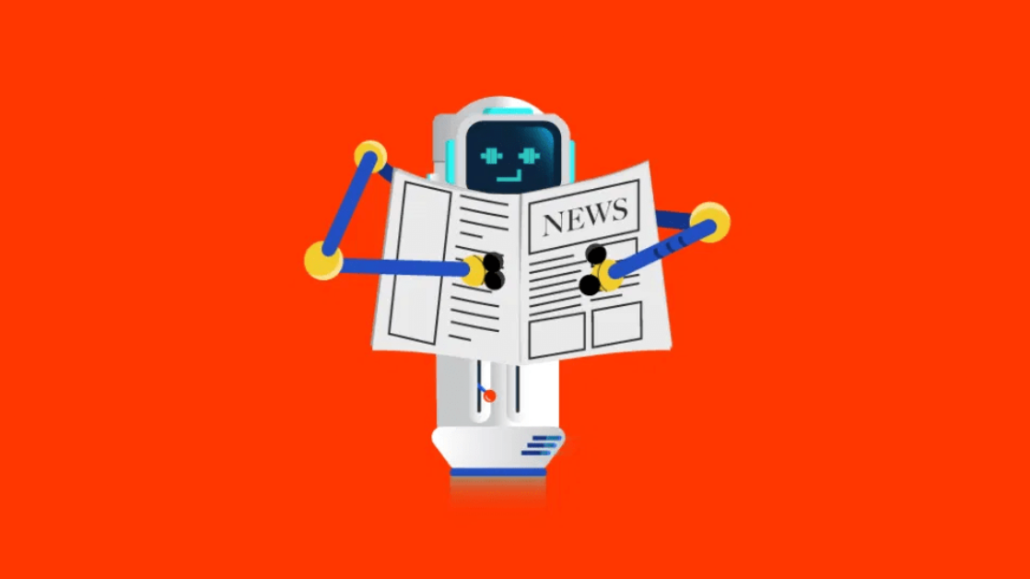Connect with execs from The New York Times, TIME, Dotdash Meredith and many more
ChatGPT’s latest update fuels publishers’ concerns about AI chatbots siphoning traffic

Since the birth of OpenAI’s ChatGPT, publishers have expressed concerns that the generative AI chatbot’s ability to give information without citing sources could lead to a decline in the referral traffic publishers get from search results.
One of the things publishers still had going for them to reduce the chatbot’s impact on their traffic was publishing real time information and breaking news as ChatGPT could only access data up until September 2021. Until now.
OpenAI announced last week that the chatbot can now access content on the internet in real time. While the feature is only available to paying ChatGPT users for now, OpenAI said in a post on X that the feature will “expand to all users soon.”
Now that ChatGPT users can use the tool to surf the internet for information, some publishers — who had previously not seen a decline in search referral traffic as a result of ChatGPT, possibly because the chatbot wasn’t using real-time data — are reconsidering the weight of the issue.
“It absolutely makes the traffic issues more urgent. Each new development does increase the urgency — especially those developments that build on existing, familiar user behaviors,” said a publishing executive who asked to remain anonymous.
But the exec wasn’t sure what to do next as a result of ChatGPT’s update. “I’m not sure yet. It’s too soon to tell,” they said.
In a demo video showcasing the update, ChatGPT answers a prompt about “the latest reviews for a commuter bike,” and ends its response with a link to a source to read more information — at least the tool is citing sources.
“We feel it’s good that AI companies are attributing sources to media publications and we’d like to see them continue down this path,” said a second publishing executive who also requested anonymity in exchange for candor. They noted this update wasn’t a surprise, given OpenAI had been testing web browsing with ChatGPT in beta for months.
The second publishing exec said their organization had not seen a decline in traffic as a result of the rise of AI chatbots either, but noted that it was “still too early to tell” if the latest ChatGPT update will have an impact.
“It’s certainly something that we’re actively paying attention to,” they said, but “I don’t think it’s going to be something that you snap your fingers and all of a sudden everyone is on ChatGPT and no one uses Google. I think that might be a little bit overblown for the time being.”
The first publishing exec said they had not yet seen a loss in traffic either. “I think it’s going to be a little bit longer before we really see the impact, but it’s definitely coming,” they said.
An Arena Group spokesperson said they are “waiting on more data” before they can comment on AI’s impact on their traffic.
“We are continuing to monitor this space,” said a Gannett spokesperson, who also declined to comment further.
IAC CFO and COO Christopher Halpin said in an August 9 earnings call that the company had “not seen any loss of traffic so far in our properties.” An IAC spokesperson declined to comment when reached out to last week.
A third publishing executive that asked to remain anonymous said they were more concerned with what Google was testing compared to what OpenAI has done so far, due to the sheer volume of users on those platforms (billions versus millions of monthly users, respectively).
The third exec referenced a mock-up of Google’s Search Labs, the tech giant’s hub for testing search features – specifically the Search Generative Experience demo, which shows an AI-generated summary at the top of Google search results. A user puts in a prompt to search for information, and instead of Google showing snippets and links to sources first, a generated answer with a few paragraphs pops up, followed by links for further reading.
If adopted, this new search experience “would lead to significant reduction in online traffic to publisher’s sites. And that would have impacts for advertising, subscription or other revenues,” the third exec said. “I think it’s a very big issue.”
More in Media

Retail media meets publishing: News UK, Future and Ocado tap clean room tech for smarter data targeting
News UK, The Independent, Immediate Media and Future are teaming up with retail media network Ocado to test clean room-powered data matching.

From sidelines to spotlight: Esports events are putting creators center stage
Esports events’ embrace of content creators reflects advertisers’ changing priorities across both gaming and the wider culture. In the past, marketers viewed esports as one of the best ways to reach gamers. In 2025, brands are instead prioritizing creators in their outreach to audiences across demographics and interest areas, including gaming.

Condé Nast and Hearst strike Amazon AI licensing deals for Rufus
Condé Nast and Hearst have joined the New York Times in signing a licensing deal with Amazon for its AI-powered shopping assistant Rufus.





